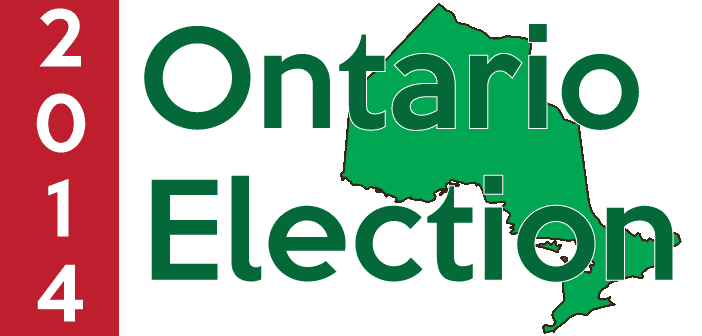Ontario’s municipal taxpayers, particularly those living in rural regions of the province such as Manitoulin Island, have had the costs of many services previously paid for by the Ontario government downloaded to them. There is some offsetting revenue for municipalities through the Ontario Municipal Partnership Fund, but the amount is steadily decreasing while the local costs rise correspondingly. The cost of Ontario Provincial Police (OPP) policing is a particularly worrying one for local taxpayers and there is no offsetting revenue directly associated with this cost.
Ontario’s small municipalities have nearly universally petitioned the Ontario government to take back the cost of policing.
What is your party’s position on this issue? If elected, would your party put in place new funds to offset OPP policing or assume these costs completely, as had been the case in the past?

Ontario Liberals have a strong record of supporting and working with municipalities. In 2014, the province will provide municipalities with ongoing support of approximately $3.5 billion—an increase of more than 200 percent since 2003.
We are continuing to upload costs of services such as social assistance benefit programs and court security and prisoner transportation costs off the property tax base, recognizing the importance of this commitment to municipalities. As a result of these uploads, municipalities are seeing over $1.5 billion in savings in 2014 alone, which is the equivalent of nearly 10 percent of property tax revenue in the province. These savings will continue to grow under a Liberal commitment to full implementation of uploads by 2018.
In recognition of the unique challenges faced by municipalities that support rural and Northern communities, we will continue to provide unconditional support through the Ontario Municipal Partnership Fund (OMPF), a cornerstone of our financial commitment to municipalities. Under a scheduled adjustment to OMPF in 2015, municipalities will receive $515 million through the program.
Municipalities help deliver our most vital services, including policing, fire response, water management and emergency response. We will not sacrifice those vital services. We will fight to preserve them. That is why work is underway to address the OPP billing model. I agree with the suggestion made by the Association of Municipalities of Ontario (AMO) for a 60:40 ratio (base costs vs. calls for service), and I will advocate for this if elected. The Future of Policing Advisory Committee is underway, and is working with our policing and municipal partners to improve public safety delivery and identify opportunities to lower cost drivers associated with policing. Ontario is the safest province in the country and we want to keep it that way.
Andrea Horwath’s NDP plunged us into an unnecessary election by deciding to vote against Liberal investments in the Ring of Fire, highway improvements, jobs, and continued support for vital services and our municipalities, while Tim Hudak’s PCs pledge to slash 100,000 public sector jobs, putting services and jobs at risk.
An Ontario Liberal plan will ensure that support to municipalities will continue to increase. Our commitment to strong, safe communities is clear.

In the past several years, the local costs related to OPP policing have been increasing steadily. Ontario’s New Democrats understand the pressures that rural municipalities are under, particularly in light of Liberal cutbacks to the Ontario Municipal Partnership Fund, which offers some limited compensation for such costs.
New Democrats would consult widely with rural municipalities and examine all funding options in coming up with an effective solution to these unacceptably escalating rural policing costs.
Municipalities are rightfully concerned about the cost of policing and the impact that the new billing model will have on property taxes.
By reducing the OMPF funds for municipalities, the government is effectively downloading more services to municipalities at a time when changes to billing practices will force some municipalities to pay more.
Police provide a vital service to communities and they should be fairly compensated for their work, however, efficiencies and predictability can be found in the system so that municipalities are not stuck paying a bill that they have no control over.
For municipalities where costs are scheduled to increase, government should look at ways of providing more support in helping them deal with the increase.
The Ontario NDP supports the bargaining process and looks forward to working with municipalities to come up with ways to develop a transparent OPP billing plan.

The OPP is filled with great men and women who put their lives on the line to serve and protect us each and every day. There is no question about the quality of service they provide to us.
Unfortunately, the cost of police service is a major and growing concern for municipalities in rural and Northern Ontario.
We need to take immediate action to fix Ontario’s broken arbitration system. It’s time to stop putting the burden of unaffordable wage increases for government unions on the backs of municipalities and their already overburdened taxpayers.
Rural municipalities across Ontario are consistently losing as a result of an outdated bureaucracy that allows arbitrators to ignore the fiscal realities confronting communities.
The Ontario PCs’ comprehensive arbitration reform Bill—the Capacity to Pay Act, 2013—would have fixed the broken system that forces unaffordable settlements on municipal councils and its taxpayers.
The Capacity to Pay Act was endorsed by the Association of Municipalities of Ontario (AMO) because municipal leaders know the status quo has been unaffordable.
Under former Premier Dalton McGuinty, and with Kathleen Wynne in a key cabinet role, the Liberals signed an election year contract with the OPP that made them the highest-paid force in the province.
On January 1 of this year, the catch-up provision in that contract kicked in.
For some rural and Northern municipalities, this meant a sudden and dramatic increase in their OPP costs. We have heard from many municipal leaders that they will need to increase property taxes by double-digits.
This, of course, sets precedents for arbitrators who still refuse to look at a community’s ability to pay their OPP bill, leading to public-service contracts for firefighters and EMS personnel to follow suit, and municipalities having to squeeze more tax dollars from our friends and neighbours.
The Liberals and NDP rejected the Ontario PC’s “Capacity to Pay” legislation, of course. And despite a supposed wage freeze, government salaries have ballooned once again, leaving municipalities like ours trying to find more ways to make ends meet.
The Liberals’ new billing model now being considered for provincial policing will not solve the problem. All it will do is tax some municipalities more and some less, creating winners and losers and pitting communities against each other. Meanwhile, it will do nothing to resolve our ability to pay our ever-increasing policing bill, and nothing to fix the real problem.
We will require those who settle contract disputes involving government workers to compare public sector jobs to similar ones in the private sector and base their decisions about pay on what local taxpayers can afford. We will look at local income and local growth, and take into account what taxpayers in small towns can afford.
And that’s a promise.
An Ontario PC government will lighten that load, not with bags of money but by getting the government off your backs so you can deliver quality services to your constituents and attract some jobs.
The McGuinty-Wynne Liberals have turned a blind eye to Ontario’s economic realities and the ability of municipalities and families to pay for the rich wage increases they routinely hand out to the public sector.
We have committed to work with municipalities to fix Ontario’s broken arbitration system by bringing more transparency and accountability, providing clear time frames, and ensuring that public sector agreements reflect the ability of families to pay the bills.
In addition to arbitration, an Ontario PC government would reinvigorate rural and Northern communities with a consistent funding model for rural infrastructure, repeal the punishing Far North Act and restore local decision-making powers like those stripped from municipalities by the McGuinty-Wynne Liberals.
But fixing arbitration alone won’t get us where we need to be.
The people of Algoma-Manitoulin need a strong Ontario economy to help create more jobs to keep our kids from having to go to Alberta to find work.
More jobs in our region means more revenue to pay for the important services our communities need.
Our party’s Million Jobs Plan is the antidote and catalyst that Ontario needs to prosper.
Ontario can, and will, do better.

At a provincial level we want to eliminate any government waste by reducing the size and scope of the provincial government. This will mean that we will be able to balance the budget and reduce taxes at the same time to provide a relief to taxpayers. Locally, municipalities should be able to prioritize and cover critical basic services (and policing is one of those). If the expenses are rising and there is really no other way to cover those expenses with the current revenue, then they may be forced to increase taxes in the municipalities, but with tax reductions at a provincial level, there will be a net gain for the residents in these areas.
So, our party position is to not set funds to offset policing costs, but as I said, by reducing taxes at a provincial level, there will be room to raise taxes at a municipal level (only if the residents of these rural communities consider that their municipal taxes are spent wisely and there is no waste).




